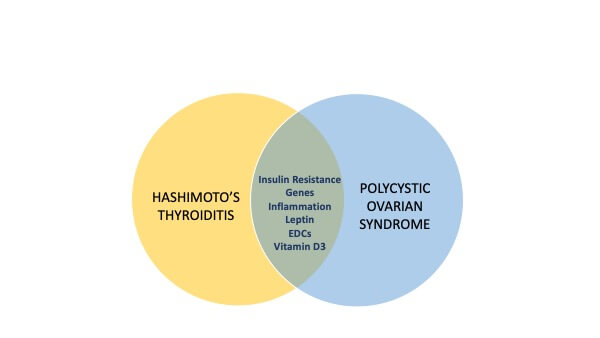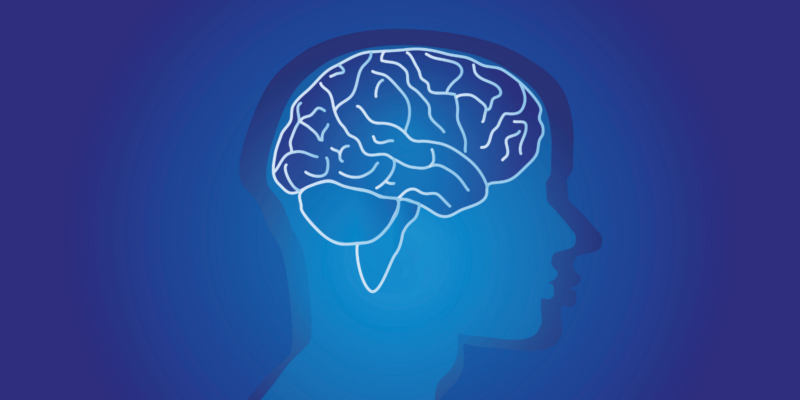Do you have both hypothyroidism and PCOS? Hashimoto’s Thyroiditis is the leading cause of hypothyroidism in women. PCOS (Polycystic Ovarian Syndrome) is the commonest hormone disorder affecting women of all ages. It is not a coincidence that some of you have both Hashimoto’s and PCOS.
How common is it?
It is relatively common. One study from eastern India looked at 106 women, 13-45 years old, with hirsutism and menstrual irregularities. Out of this group of women, 80 were diagnosed with PCOS. Most of the women with PCOS were very young, 15-20 years old. More than half were overweight. An alarming finding was the presence of high blood pressure in many of these young women.
The researchers tested all the women for thyroid functions. Besides TSH, Free T3, Free T4 and Anti-TPO antibodies, they had a thyroid ultrasound as well.
What did they find:
Hashimoto’s Thyroiditis was present in many women with PCOS, a number much higher than in women without PCOS. ((Ref))
A study from Germany reported in the European Journal Of Endocrinology in 2004 found Hashimoto’s Thyroiditis was three times more common in women with PCOS than in women without PCOS. ((Ref))
What are the connections between PCOS and Hashimoto’s?
There are several inter-connections between PCOS and Hashimoto’s. As you can see in the image below, these are Insulin Resistance, genes, inflammation, Leptin, EDCs, Vitamin D3.

Hashimoto’s And PCOS
TSH Level and Insulin Resistance In PCOS
PCOS’s underlying problem is an abnormality of the carbohydrate-insulin system called insulin resistance, which shows up as irregular cycles, excess hair growth, obesity, low mood, acne, high levels of male hormones and infertility.
Is there an optimal TSH level for women with PCOS?
TSH (Thyroid Stimulating Hormone) levels are high in people with hypothyroidism. Several studies have shown that PCOS women with higher TSH levels have unhealthy lipid numbers, higher levels of male hormones and worse insulin resistance. ((Ref))
What is the optimal TSH level for PCOS? Most studies have shown that TSH levels above 2 to 2.5 mIU/l are related to a worse outcome. These numbers hold even after correcting for body weight and age.
TSH and Androgen Levels
Elevated androgens (male hormones) are a hallmark of PCOS.
In a study from China, the authors studied women with PCOS. They found that having a TSH level greater than 2.5 mIU/l even in women without hypothyroidism was related to higher androgens levels.
High androgens are also associated with higher insulin resistance. ((Ref))
(Interestingly, lower TSH levels seem to benefit mood issues as well )
Vitamin D3 Deficiency
The deficiency of vitamin D3 is like an epidemic worldwide. Low vitamin D3 levels are associated with many diseases, primarily diabetes, autoimmune conditions, heart disease, bone loss and many more. Considering that Hashimoto’s, PCOS, and Vitamin D3 deficiency are all common, is it just a coincidence?
In an Italian study reported in the journal Endocrine, the authors looked at vitamin D3 levels and thyroid function tests in women with PCOS. The levels of vitamin D were significantly lower in women with PCOS and Hashimoto’s than in women with PCOS without Hashimoto’s. ((Ref))
Endocrine-Disrupting Chemicals (EDCs), PCOS and Hashimoto’s
EDCs are hormone-disrupting chemicals that mimic the action of hormones. They have been associated with numerous health conditions like obesity, diabetes, hypothyroidism, heart disease etc. ((Ref ))
Bisphenol A (BPA) is an EDC used in making plastics and lining tin cans and is present even in cash register receipts!
Higher blood levels of BPA were found in women with PCOS with elevated androgen levels. ((Ref))
EDCs and Thyroid:
As you can see in the image below, EDCs affect thyroid hormones at different levels.

Relationship between the hypothalamic-pituitary-thyroid axis and EDCs. EDCs can disrupt the axis and influence thyroid homeostasis by (a) binding to transport molecules, (b) binding to receptors, (c) mimicking THs, and (d) blocking iodine from entering the thyroid. ((Ref))
Studies have shown that exposure to multiple hormone-disrupting chemicals was associated with higher T3 levels in women, while in men, it was the opposite. ((Ref))
What does this mean for you?
- If you have PCOS, you need to test for Hashimoto’s Thyroiditis.
- Likewise, if you have Hashimoto’s Thyroiditis, you need to determine whether you have PCOS or insulin resistance.
- If you already have both conditions, you need optimal treatment for them. A TSH “within the normal lab range of less than 5 mIU/l” may not be enough for you.
- An optimal TSH level is particularly relevant if you are planning on getting pregnant or undergoing fertility treatment.
- Optimize your vitamin D3 levels.
- How can you reduce your exposure to EDCs? Get rid of plastic containers, water bottles etc. Check www.ewg.org for more details.


